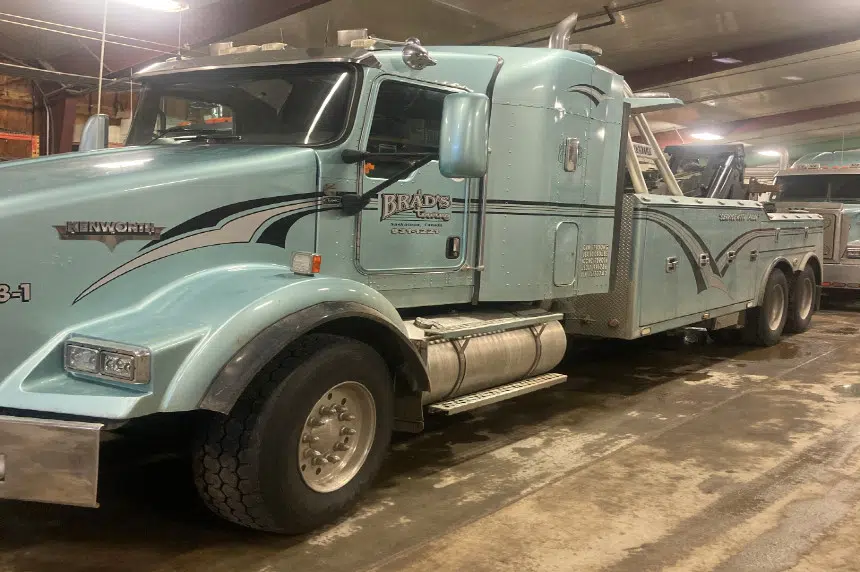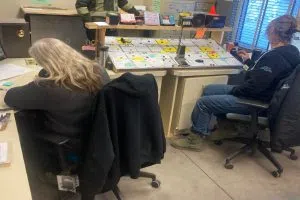Winter has been a whirlwind for tow truck companies in Saskatchewan.
Tow operators have been pulling long hours this week rescuing vehicles stuck in snowbanks after Monday’s blizzard, but for some in the industry, the phones have been ringing non-stop even before the latest blast of wintery weather.
Brad Stratychuk, the owner of Brad’s Towing in Saskatoon, has been in the industry for 39 years and he can’t recall a stretch of weather that has created this much demand for tow trucks.
“We often just stay at the shop; the phone is relentless,” Stratychuk said, noting he and his wife haven’t had a break since Boxing Day.
“When you’re in the helping people business, it’s incredibly disheartening not to get to people. For two weeks straight we probably turn away 100 calls a day that we just can’t get to.”
While long stretches of cold, stormy weather has been driving calls for service, Stratychuk says it’s also exposing a bigger problem that has been plaguing the towing industry for a while.
Stratychuk had extra trucks available during the blizzard on Monday but nobody to drive them.
“Unfortunately, we haven’t been able to accept work after midnight, simply because there just isn’t enough people doing the job,” he said. “(We’re) always looking to hire, but the reality is when it gets that stormy you can have three, four times the amount of trucks and you still wouldn’t be able to keep up.
“Sometimes all we can do is assist with good advice to keep them safe.”
It’s not just the weather that is creating more pressure on the towing industry.
Increased population, fewer workers and the availability of new vehicles is also increasing workloads, according to Stratychuk.
Stratychuk, who also serves as president of the Roadside Responders Association of Saskatchewan (RRAS), said his competitors are having trouble coping as well.
“It’s a provincial-wide problem,” he said. “We’re finding that the garages are fixing older vehicles more so than they did five years ago and there’s more folks around in the winter. A lot of the snowbirds are here.
“We’re getting calls to see if we can head down to various other cities to help out. There’s people phoning 200, 300 kilometres away to move them 20 miles because there’s no one in their area either.”
While Stratychuk knows this cycle will pass, without some rejuvenation there is a risk of burnout.
The RRAS has been in ongoing talks with the provincial government about developing a strategy to promote the industry as a career.
“We have international training courses,” Stratychuk said. “It’s a tough job. Not a lot of people like to stay in it as long as we have, but it’s a good way to contribute to society, help people and make a good living.”












